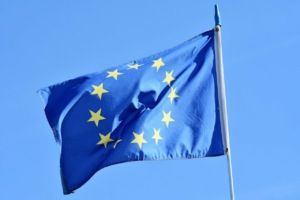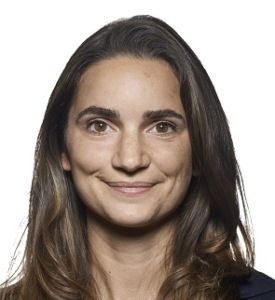Opinion
Economics Explained: The EU Recovery Funds and who will pay for it
Martina Facino
This article is more than 4 years old.

No taxes on flags, fortunately (photo: Pixabay)
The COVID-19 pandemic and related lockdown measures have triggered an economic downturn. As businesses such as shops, restaurants and theatres were forced to close, and travel was forbidden, economies worldwide slowed down, with consequent bankruptcies and increased unemployment.
Billions up for grabs
To help European countries recovering from the economic downturn, the European Commission, the European Parliament and EU leaders have agreed to make 750 billion euros available to member states: the so-called EU recovery fund.
Around half of this amount will be available to member states in the form of grants (i.e money that is ‘donated’ to the states), while the rest can be provided in the form of loans (i.e money that the EU lends to the member states, which has to be paid back with interest).
In order to unlock their allocated share of the fund, member states will need to present national recovery plans (i.e show how they plan to employ the funds).
Where does it come from?
To finance the provision of the fund, the European Commission (on behalf of the EU) will issue bonds on financial markets – so quite similar to how a company would do it.
Because the EU is a union of countries and is therefore perceived as safe, it can borrow money at cheaper rates than (most) individual countries.
The Commission will then either lend the money to individual member states (at the same interest rate as the one it borrows at) or provide the money as grants.
Is it really for free?
Although the EU countries that use the grant money will have access to better financing rates, there is always a cost attached to the grant money.
Borrowing on the financial markets means that investors (i.e the buyers of the EU bonds) expect a return, which will be paid by the EU budgets in the coming years (by the end of 2058).
So ultimately the debt will be paid by companies and citizens contributing to the EU budget through different channels (different types of taxes).
Green alignment
Additionally, the European Commission has added new taxes, including one on plastic waste.
This has the objective of not only providing an additional source of funding, but also of nudging companies and consumers towards greener solutions in line with the EU’s objectives on environmental sustainability.

About
Martina Facino
Martina Facino works for a leading consultancy firm where she specialises in competition economics and maintains a strong interest in macroeconomics. Using her master’s in economics and finance, she intends to focus on explaining macroeconomic concepts and describing them in the current context.










































